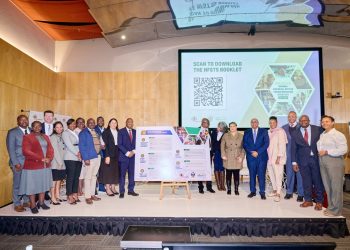
Namibia’s credit market saw a modest uptick in the third quarter of 2023, with total credit extended reaching N$357.1 billion, latest data shows.Â
According to Simonis Storm Securities, this represented a 0.09% increase compared to the second quarter, translating to a 4% rise in credit to the private sector compared to the same period in 2022.
However, the credit growth is notably slower compared to previous quarters in 2023.
Simonis Storm Securities Researcher Angelique Bock highlighted that the average credit extension in the third quarter was 2.1% year-on-year, significantly lower than the 4.2% average in the same quarter last year.Â
The Bank of Namibia (BoN) attributed the slow growth to a reduced appetite for credit from the private sector and higher net repayments. Despite these challenges, the Namibian economy remains resilient.
This comes as in the first half of 2023, Namibia achieved a nominal GDP of N$115.9 billion and real GDP of N$76.9 billion, the highest on record.
“The nominal GDP surged by 14.1% year-on-year in the second quarter of 2023, driven by increased mining activity. It’s worth noting that mining companies were net repayors of their loans, possibly indicating alternative funding sources,” Bock noted.
Divergent credit behaviours were observed across sectors. Businesses continued to be net repayors of their debt, with a decline of 2.1% year-on-year in September 2023.
In contrast, households and foreigners were borrowers, albeit at a slower pace, with credit growth rates of 4.3% and 1.6% year-on-year, respectively.
“The slow credit growth can be primarily attributed to subdued demand, particularly in sectors like services, wholesale and retail trade, commercial real estate, mining, manufacturing, and fishing,” she said.
Household credit expansion decelerated, especially in overdraft credit and other loans and advances, while mortgage credit remained steady with a 1.2% year-on-year growth.
Meanwhile, overdraft credit growth contracted by 0.4% year-on-year due to reduced demand and higher corporate repayments.Â
However, instalment sales and leasing credit increased by 11.6% year-on-year, driven by strong demand for new vehicles from both businesses and households.
“For the first time in nine consecutive quarters, real consumption spending growth dipped into negative territory, possibly due to a stricter monetary policy stance. Additionally, a 7.6% year-on-year contraction in medical aid funds during the first quarter of 2023 indicated consumers may be relinquishing their medical aid coverage due to financial constraints,” said Bock.Â
The researcher noted that despite subdued lending by commercial banks, microlender credit extension experienced a substantial contraction of 10.3% year-on-year in the first quarter of 2023, accounting for 5.6% of the total outstanding credit.











